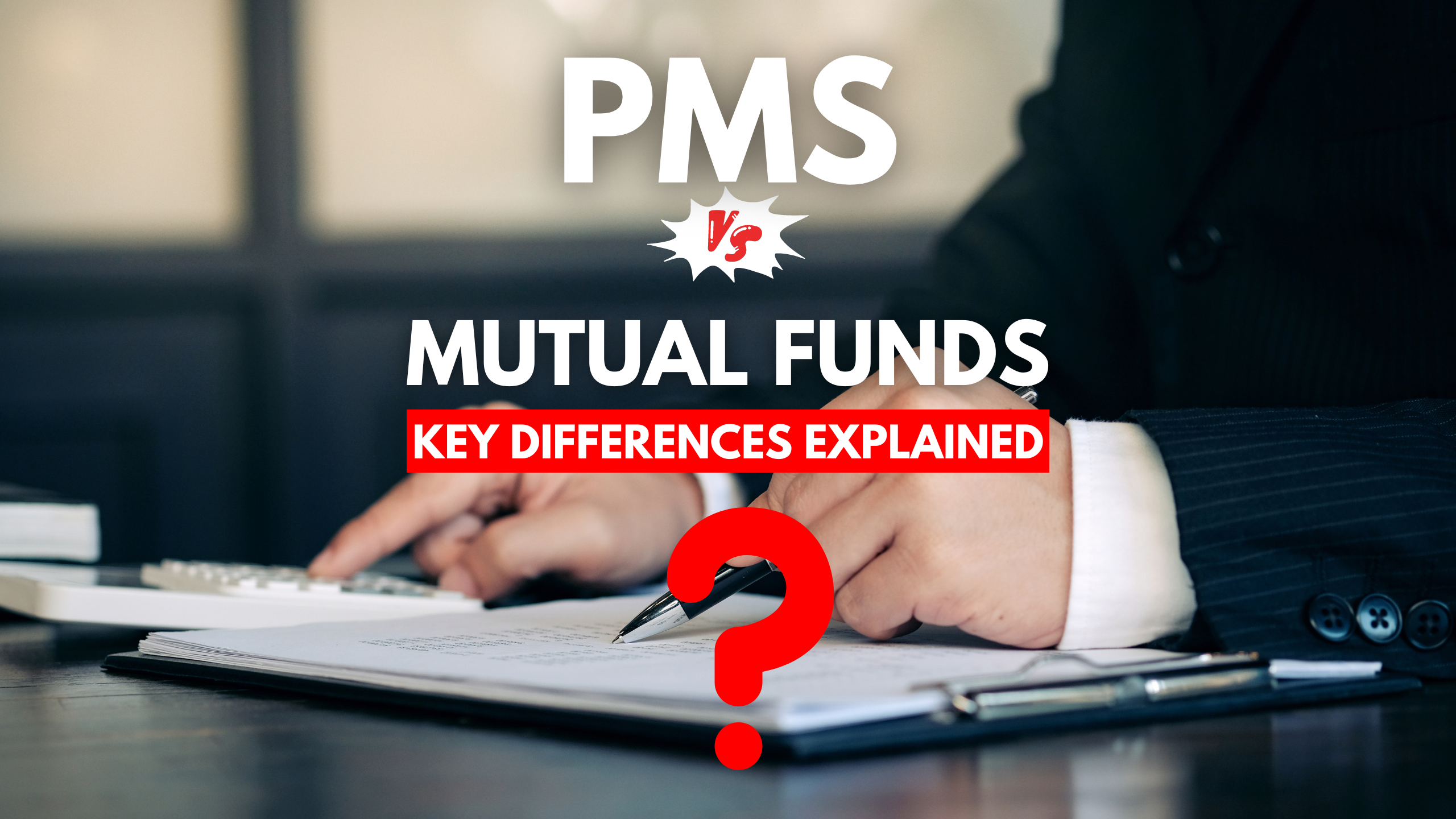When it comes to long-term investment growth, investors often find themselves choosing between Mutual Funds and Portfolio Management Services (PMS). Both options are designed to grow wealth over time, but they cater to different investor needs and profiles. Understanding their features, benefits, and differences can help you make an informed decision about which investment avenue is right for you.
What Are Mutual Funds?
Definition and Structure: Mutual funds are professionally managed investment vehicles that pool money from multiple investors to invest in a diversified portfolio of assets, such as stocks, bonds, or other securities. These funds have specific goals and strategies outlined by the fund manager, aiming to achieve returns based on these predefined objectives.
Key Features:
- Diversification: Mutual funds offer broad diversification by investing in a variety of securities. This helps spread out risk and reduce the impact of poor performance from any single investment.
- Professional Management: Fund managers with expertise and experience oversee mutual funds, making investment decisions on behalf of the investors.
- Lower Costs: Typically, mutual funds have lower management fees and expense ratios compared to PMS. They charge fees based on a percentage of the assets under management, which includes operational and management costs.
- Accessibility: Mutual funds usually require a lower minimum investment, making them accessible to a wide range of investors, including those with modest capital.
- Transparency: Investors receive regular, standardized reports detailing the fund’s holdings and performance, allowing for easy tracking and assessment.
- Regulation: Mutual funds are regulated by the Securities and Exchange Board of India (SEBI), ensuring strict adherence to industry best practices and investor protection.
- Variety: There are various types of mutual funds, including equity funds, debt funds, balanced funds, and sectoral funds, catering to different investment goals and risk appetites.
What Are Portfolio Management Services (PMS)?
Definition and Structure: PMS are investment services tailored to high net-worth individuals (HNIs) who have substantial amounts to invest, usually starting from ₹25 lakh or more. Unlike mutual funds, PMS offers personalized investment strategies and portfolios designed to meet individual investor needs and preferences.
Key Features:
- Customization: PMS provides highly personalized portfolios based on the investor’s risk tolerance, investment goals, and preferences. This level of customization allows for a more tailored investment approach.
- Higher Control: Investors in PMS have greater control over their investment strategy and the selection of individual securities. This flexibility can lead to potentially higher returns, as managers can make strategic decisions based on market conditions.
- Higher Costs: PMS typically involves higher management fees and performance fees compared to mutual funds. These fees are usually a percentage of the assets managed and may include additional charges based on performance.
- Flexibility: PMS allows investment across various market capitalizations and sectors without being constrained by predefined schemes. This flexibility can be advantageous in identifying and capitalizing on market opportunities.
- Transparency Issues: Unlike mutual funds, PMS portfolios may lack transparency in terms of asset allocation and strategy, making it harder for investors to understand how their money is being managed.
- Risk Management: The flexibility of PMS can also lead to riskier investment strategies. Without predefined constraints, there is a risk of concentration in specific sectors or securities, which can increase volatility.
Comparing Mutual Funds and PMS
Suitability:
- Mutual Funds are suitable for most investors, especially those new to investing or with a moderate risk tolerance. They offer a cost-effective, diversified, and professionally managed investment option.
- PMS is more appropriate for high net-worth individuals who seek a customized investment approach and are comfortable with higher fees and potential risks.
Costs:
- Mutual Funds generally have lower fees and expense ratios.
- PMS involves higher fees, including management and performance fees.
Transparency and Reporting:
- Mutual Funds offer regular and standardized reporting, providing clear insights into holdings and performance.
- PMS may offer less transparency, requiring more trust in the portfolio manager’s expertise.
Control and Flexibility:
- Mutual Funds offer limited control over specific holdings but provide broad diversification.
- PMS offers greater control and flexibility in managing investments but comes with higher risks and costs.
Conclusion
Choosing between mutual funds and PMS depends on your individual circumstances, investment goals, and risk tolerance. Mutual Funds are a better fit for most investors due to their lower costs, accessibility, and transparency. They provide a diversified, professionally managed, and regulated investment option. On the other hand, PMS might be suitable for high net-worth individuals looking for a highly personalized investment strategy and willing to accept higher fees and potential risks.
Assess your financial goals, risk appetite, and investment horizon before making a decision. Whether you opt for mutual funds or PMS, it’s essential to understand how each investment vehicle aligns with your overall financial strategy.
Read More: OSTP Media: Latest Tech, Automotive, and Trending News

